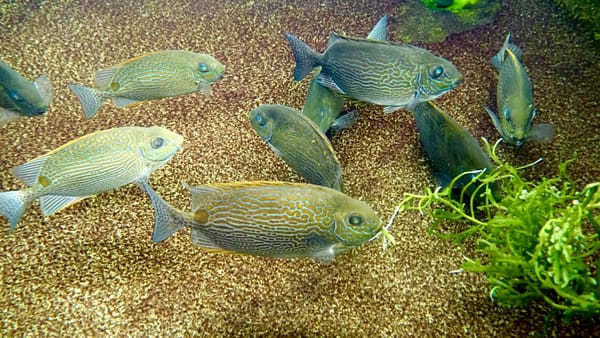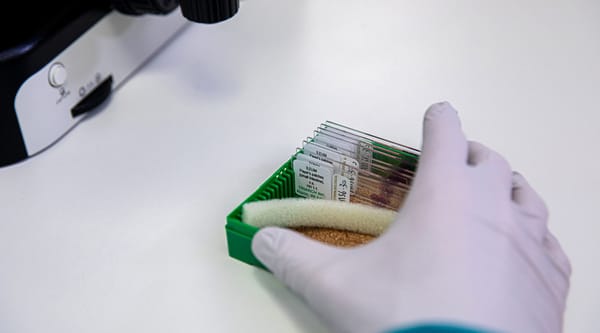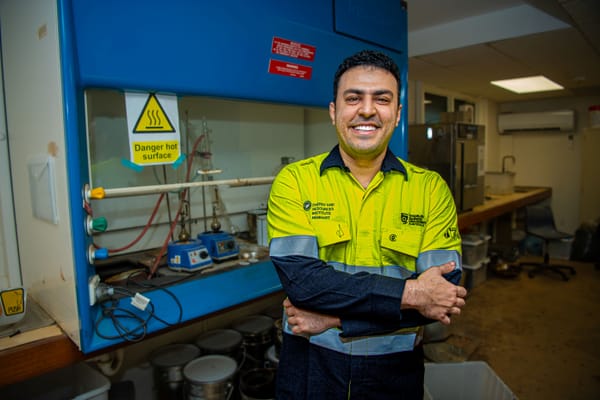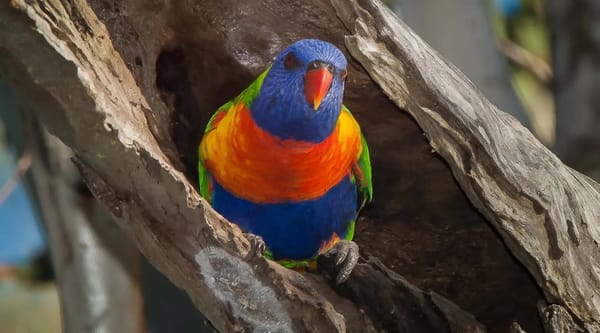'Marigurim Yan’: A path to new possibilities for First Nations youth
Marigurim Yan – the Butchulla word for ‘strong walk’ – is the inspiration behind a research-based educational program guiding First Nations youth to dream big and think deeply about their futures.
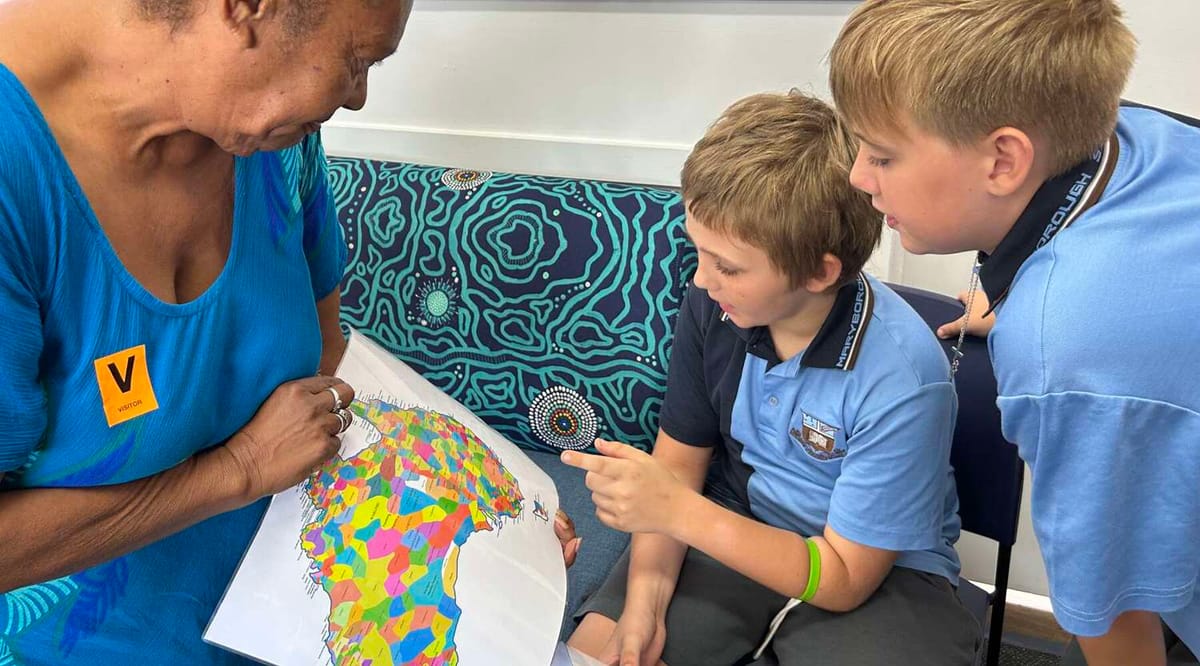
First published by University of the Sunshine Coast
Clare McKay
Marigurim Yan – the Butchulla word for ‘strong walk’ – is the inspiration behind a research-based educational program guiding First Nations youth to dream big and think deeply about their futures.
Following a successful pilot, The John Villiers Trust (JVT) has provided the University of the Sunshine Coast-led program with a grant of almost $300,000 to deliver the initiative to 180 Aboriginal and Torres Strait Islander Young People across the Fraser Coast over the next three years.
“At its heart, it is about helping these students find self-belief and confidence through their culture – and using this to raise aspirations to set goals such as completing Year 12 and university,” said UniSC Senior Lecturer in Education Dr Sharon Louth, who leads the project.
“The initiative works by boosting the capacity for schools and their surrounding communities to succeed in supporting Aboriginal and Torres Strait Islander students’ study and career outcomes,” she said.
As well as helping youth take a ‘strong walk’ towards success, the program develops another important belief called ‘dadirri’.
Barry Bird, an Aboriginal Elder and UniSC project facilitator, said that the activities promoted deep listening and reflection on their dreams and career aspirations.
“By engaging students in ‘dadirri’ we also encourage them to take ownership of shaping their own futures,” he said.
The outcome will be a model that can be adapted and adopted by regional and remote communities throughout Queensland to improve the long-term educational outcomes for Aboriginal and Torres Strait Islander young people.
Finding their futures through their past
Since the start of semester, Marigurim Yan students in Years 7, 8, and 9 at two lead schools, Maryborough State High and Urangan State High, have been immersing themselves in traditional stories, language, art and customs through activities guided by school Indigenous support staff, Butchulla community members, and UniSC academics.
“The first part of the program is about creating connection with their past by helping them to find out who their mob is, and how that makes them who they are,” Mr Bird said.
“This is all done with minimal interruption to their formal schooling in the classroom, while building pride and sense of belonging,” he said.
“Our goal is for these students to say: ‘I’m proud to be Aboriginal, I’m proud to be Torres Strait Islander, and I am proud to do well at school’. That’s the key to engaging these students in learning and raising their aspirations.”
It’s a concept that resonates with Marigurim Yan students such as Lani and William.
“Knowing more about my culture and where I come from helps me find my path and think about where I might go in my future,” Lani said.
William agrees. “It is important. It helps to bring everything together in your mind, and I feel a big connection to my family and culture.”
As the program progresses, the emphasis shifts to teaching students how to set goals, while offering a culturally safe and supportive space where they can explore future study and career options.
Mr Bird said the aim was to help them realise that finishing high school should be the norm.
“We want them to know they can then go on to uni, take on a trade, find a rewarding career —and potentially give back to their community at the same time.
“This can have valuable flow-on effect with the students who complete the program setting good examples and inspiring their younger siblings, cousins, and friends.”
Lifting students up to lift learning outcomes
The initiative builds on the success of a pilot scheme by UniSC Fraser Coast that was co-designed and implemented in partnership with the Butchulla Native Title Corporation in three high schools in Hervey Bay and Maryborough in 2023.
“It’s a research-based approach we know works,” Dr Louth said.
“Research from the pilot showed that after four terms of activities and workshops, school attendance improved, engagement with learning grew and participants began setting goals that included leadership roles and university degrees.

“This is an important measure of success – having student recognise the importance of attending school and putting in effort to reach their goals.”
A key feature of the Marigurim Yan is boosting the capacity of schools and their surrounding communities to support Aboriginal and Torres Strait Islander students to realise their full potential.
“This initiative allows the school to take full ownership of the program, with the goal of equipping them to offer Marigurim Yan as a yearly program for years to come,” Dr Louth said.
“Regional and remote high schools employ Indigenous education support workers to support student engagement, and the program also provides further professional development for people in this role.
“Uplifting educational outcomes for Aboriginal and Torres Strait Islander youth living in regional and remote Queensland is vital to build regional capability, reconciliation and achieve national targets to close gaps in youth education and employment.
“If we are to shift the agenda then careful attention must be paid to how educational aspirations, and school engagement and achievement, are supported in culturally appropriate, and locally driven ways.”
Building lasting impact
Dr Louth, who worked with the Butchulla community to secure funding for Marigurim Yan, said having The John Villiers Trust recognise the worth of this approach was truly rewarding.
“With their support, we are undertaking research over the next three years that will generate new knowledge around creating sustainable programs that make a difference to the long-term educational outcomes,” she said.
“We will document effective approaches to upskilling the local education support workforce and develop a model that can be adapted and adopted by regional and remote communities throughout Queensland.”
The John Villiers Trust Chairman Dr Ian Galloway said the Trust and its Directors were committed to helping young people in rural, regional and remote communities access quality education, so were pleased to support the initiative.
“Marigurim Yan is a futures-focused program supporting educational outcomes and goals of young Aboriginal and Torres Strait Island students living in regional and remote areas and building educator capability,” Dr Galloway said.
“That strongly aligns with our priorities at JVT – which are to fund community-driven and codesigned initiatives that have multiple impacts and build capability.
“Ultimately, our aim is to achieve transformative impact in Queensland communities through active engagement and strong partnerships. We hope that our support allows our grantees to build the capacity needed to continue and expand their projects long after our involvement – which is the goal of Marigurim Yan”.
UniSC Deputy Vice-Chancellor (Research and Innovation) Ross Young said the innovative program focused on capacity building to support education and employment for Aboriginal and Torres Strait Islander youth.
“We are deeply committed to the development of opportunities for young people and share this commitment with our partners, including the Butchulla Native Title Aboriginal Corporation,” he said.

